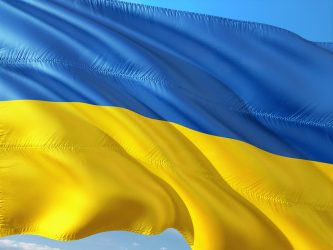 Six potential bills to regulate gambling, plus two draft amendments to tax and budget laws around gambling and one change to rules about illegal gambling, have been submitted to the Ukranian Parliament.
Six potential bills to regulate gambling, plus two draft amendments to tax and budget laws around gambling and one change to rules about illegal gambling, have been submitted to the Ukranian Parliament.The regulations all act as potential alternatives to the reforms submitted by the Servant of the People Party-led government in Parliament in October and released to the public earlier this month.
Each bill presents a similar regulatory framework for gambling in Ukraine, allowing for online gambling, sports betting, lotteries slow machines and casinos. Casinos would only be available at five-star casinos, while slot machines would only be available at casinos with three or more stars.
However, the bills differ on licence fees. Most suggest a licence auction with a minimum fee, but two include a set licence fee.
One bill, proposed by Taras Tarasenko, includes a minimum licence fee of UAH78.0m (£2.5m/€2.9m/$3.2m) for casinos in Kyiv and UAH 51.7m for both casinos elsewhere and online gambling, which will go towards the country’s state budget.
The bill would determine bookmaking licences through a system where each licensee would have the rights to open 10 bookmaking shops. In each of these bills, 32 bookmaking licences would be available in Kyiv, 16 between Ukraine’s other large cities of Odes and Kharkov and a further 32 in the rest of the country. Tasarenko’s bill also proposes a ban on the use of credit or loans to gamble.
A second bill, submitted by Roman Mulik, involved different licence fees for five-year of ten-year licences, while all other bills included only five-year licences. Both online gambling and casino licences would total UAH16.3m for five years of UAH32.6m for ten. It did not mention limits on the number of licences of any kind.
Hanna Lichman also put forward a proposal, which would include a limit on online gambling licences at 10 and casino licences at 20, as well as the same system for bookmaking licences as Tasarenko. Minimum licence fees for casinos would total UAH78.0m
The bill with the lowest licence fee for online gambling, at UAH 6.7m, came from Oleg Marusyak. Marusyak’s bill also included a minimum licence fee of UAH41.7m for casinos in hotels with 200-250 rooms and a fee of 62.6m for casinos in hotels with 250 or more rooms and a much lower minimum for online gambling. In addition, the bill includes a similar system for bookmaking licences to Tasarenko’s, but would allow for only half as many bookmaking shops.
Two bills included set licence fees for online gambling and casino, rather than using an auction. A bill proposed by Oleksandr Dubinsky would offer auctions only for bookaming and gambling machines, but for both casinos and online gambling, licence fees would be set at a fixed cost of UAH333.8m. The bill would also limit slot licences to 160.
Dubinsky’s bill was also the only one not to list a mandated minimum winning percentage for slot machines. All other bills set this at 90%.
A bill proposed by Dmitriy Natalukha involves the same set fee for online gambling at UAH333.8m, but a lower online licence fee of UAH62.6m. Similarly to Dubinsky, bookmaking and gaming machine licences would be determined by auction.
The bills did have similarities in terms of responsible gambling provisions, however. Each bill proposed a register for self-excluded players and the distribution of responsible gambling information to staff.
The budget and tax laws would allow for the creation of a state gambling fund, but the tax rates on gambling were not mentioned.









